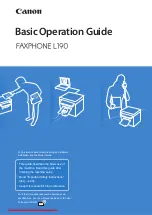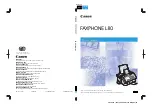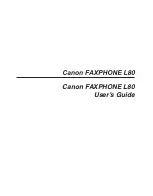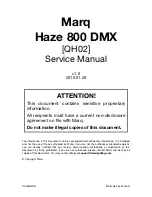
4
• party-line systems
• most electronic key phone systems
THE FCC WANTS YOU
TO KNOW
In the unlikely event that your phone causes
problems on the phone line, the phone com-
pany can temporarily discontinue your ser-
vice. If this happens, the phone company
attempts to notify you in advance. If advance
notice is not practical, the phone company
notifies you as soon as possible and advises
you of your right to file a complaint with the
FCC.
Also, the phone company can make changes
to its lines, equipment, operations, or proce-
dures that could affect the operation of this
telephone. The telephone company notifies
you of these changes in advance, so you can
take the necessary steps to prevent interrup-
tion of your telephone service.
Your phone might cause TV or radio interfer-
ence even when it is operating properly. To
determine whether your phone is causing the
interference, turn off your phone. If the inter-
ference goes away, your phone is causing it.
Try to eliminate the interference by:
• moving your phone away from the
receiver
• connecting your phone to an AC outlet
that is on a different electrical circuit
from the receiver
• contacting your local RadioShack store
for help
If you cannot eliminate the interference, the
FCC requires that you stop using your
phone.
Some cordless telephones operate on fre-
quencies that might cause interference to
nearby TVs and VCRs. To minimize or pre-
vent such interference, the base of the cord-
less telephone should not be placed near or
on top of a TV or VCR.
LIGHTNING
Your telephone has built-in protection circuits
to reduce the risk of damage from surges in
telephone line and power line current. These
protection circuits meet or exceed the FCC
requirements. However, lightning striking the
telephone or power lines can damage your
telephone.
Lightning damage is not common. Neverthe-
less, if you live in an area that has severe
electrical storms, we suggest that you unplug
your phone when storms approach to reduce
the possibility of damage.
IMPORTANT SAFETY
INSTRUCTIONS
When using your telephone equipment, ba-
sic safety precautions should always be fol-
lowed to reduce the risk of fire, electric shock
and injury to persons, including the following:
1. Read and understand all instructions.
2. Follow all warnings and instructions
marked on the product.
3. Never install telephone wiring during a
lightning storm.
4. Never install telephone jacks in wet
locations unless the jack is specifically
designed for wet locations.
5. Never touch uninsulated telephone
wires or terminals unless the telephone
line has been disconnected at the net-
work interface.
6. Use caution when installing or modifying
telephone lines.
43-3806.fm Page 4 Tuesday, August 8, 2000 11:29 AM





































